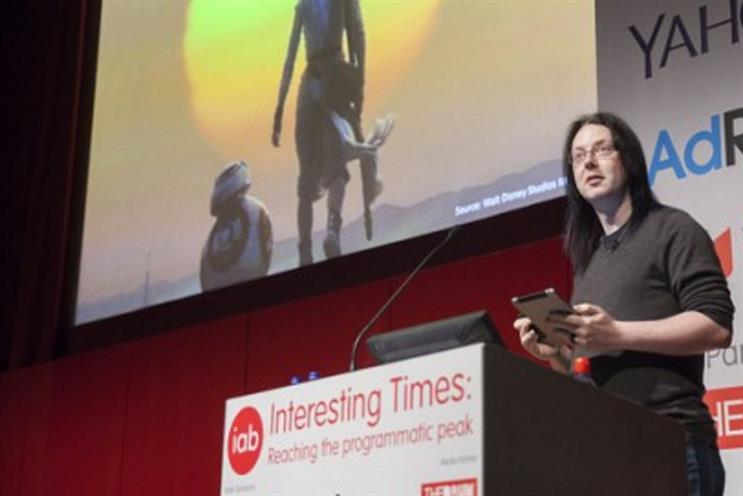At the start of my career in digital I had to explain to my mother what my job trafficking ads at DoubleClick was all about.
Her eventual take-away was that I "did pop-ups", those vilified formats that were eventually done away with (weren’t they?).
A few years ago when I edited the IAB’s Programmatic Handbook I had to explain what real time advertising was and the outcome was "those ads that follow me around for things I’ve already bought.
I don’t begrudge her these simplifications as from her I learned my sense of humour and my enduring love of science fiction novels.
I recently started rereading Isaac Asimov’s Foundation series. You’re perhaps more familiar with Asimov for his three laws of robotics:
- A robot may not injure a human being or, through inaction, allow a human being to come to harm
- A robot must obey orders given it by human beings except where such orders would conflict with the First Law
- A robot must protect its own existence as long as such protection does not conflict with the First or Second Law.
Laws that do not apply to the robots I have encountered in my ad tech career to date but may rely on in the near future when a self-driving car attempts to sell me life insurance. I imagine it will be very persuasive.
The Foundation series instead spans the decline of a Galactic Empire and the attempts by one man and the Foundation he establishes to limit the subsequent chaos through the application of psychohistory – societal behavioural predictions.
For psychohistory to be effective though it relies on two axioms – that the population whose behaviour was modelled should be sufficiently large and that the population should remain in ignorance of the results of the application of psychohistorical analyses.
Asimov was essentially rewriting The History of the Decline and Fall of the Roman Empire as a space opera and spinning individual yarns where the protagonists were generally aware of psychohistory as a concept but not the particulars of its application, the natives they encountered would nonetheless assume they were space wizards.
Psychohistory doesn’t work on individuals, only on massive populations, the drama therefore focuses at the human scale with intuition, guile, cunning, deception and persuasion required. Every so often an unavoidable macro crisis occurs and shifts the narrative onwards.
I’m attempting to draw several parallels at once here, perhaps some of them more successfully than others:
- Giant, stagnant empires will fall to new technologies, concepts and innovations and their resultant applications.
- Behavioural influence is nothing new and isn’t as effective at a personal level when generated at scale.
- I don’t want my mother to know what programmatic is despite my championing an industry-agreed definition of it, curating two handbooks dedicated to it and spending innumerable hours speaking on it.
Programmatic grew like a lotus from the mud of remnant inventory and is slowly but surely finding applications throughout the digital ad space, permeating its way up through the consideration funnel and eventually will just be the way we’ve always done it, in effect becoming the new status quo of the advertising empire.
The end consumer shouldn’t care about the nuts and bolts of how it’s done, they should be focused on the drama at the individual level and the emotional impact of digital advertising done right. So the next time my mother asks me what it is that I do, rather than hand her a copy of the new and improved Programmatic Handbook, I can just knowingly smile and say "space wizardry".
Dee Frew is the senior programmes manager at IAB UK.


